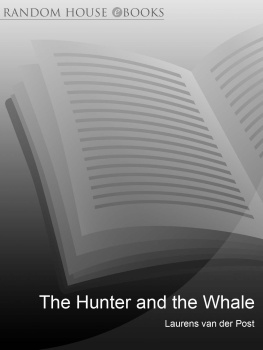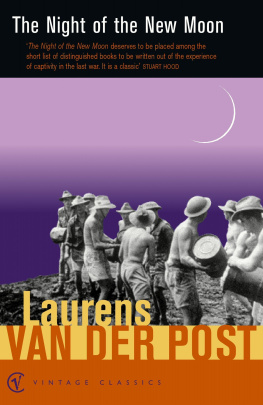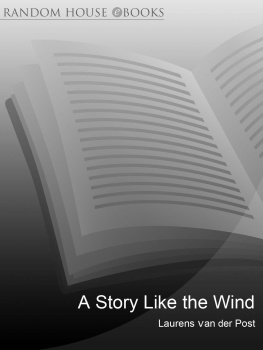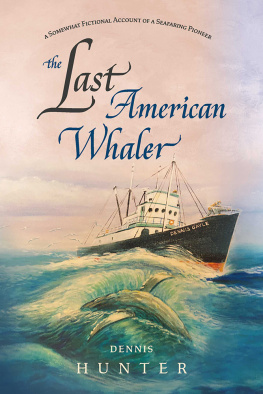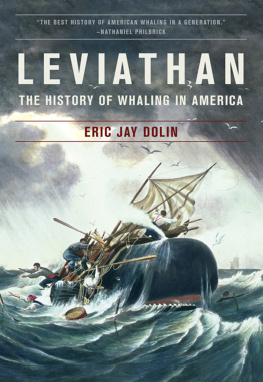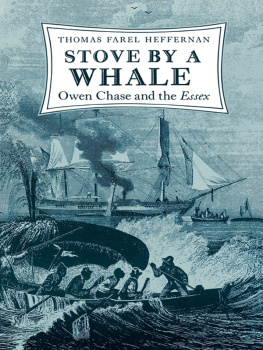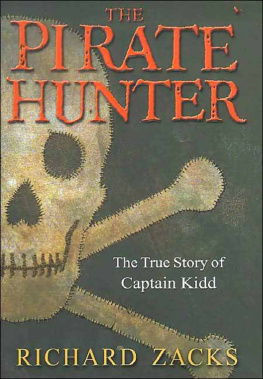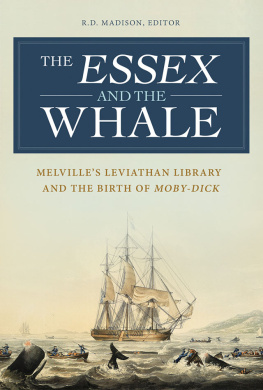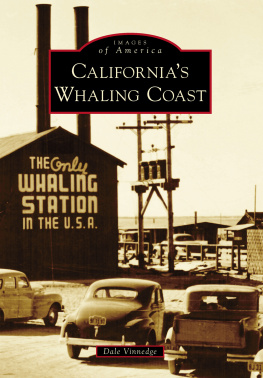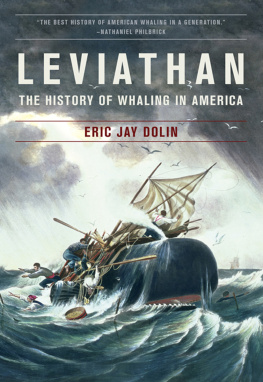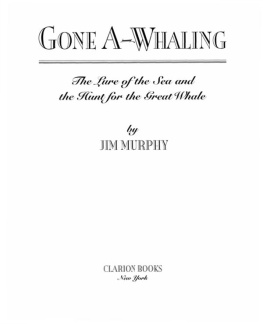The Hunter and the Whale
A Story
Laurens van der Post

Also by Laurens van der Post
IN A PROVINCE
VENTURE TO THE INTERIOR
THE FACE BESIDE THE FIRE
A BAR OF SHADOW
FLAMINGO FEATHER
THE DARK EYE IN AFRICA
THE LOST WORLD OF THE KALAHARI
THE HEART OF THE HUNTER
THE SEED AND THE SOWER
JOURNEY INTO RUSSIA
THE NIGHT OF THE NEW MOON
A STORY LIKE THE WIND
A FAR-OFF PLACE
A MANTIS CAROL
JUNG AND THE STORY OF OUR TIME
FIRST CATCH YOUR ELAND
YET BEING SOMEONE OTHER
With photographs by Burt Glinn
A PORTRAIT OF JAPAN
A PORTRAIT OF ALL THE RUSSIAS
About the Author
Laurens van der Post was born in South Africa in 1906, the thirteenth of fifteen children in a family of Dutch and French Huguenot origins. Most of his adult life was spent with one foot in Africa and one in England. His professions of writer and farmer were interrupted by ten years of soldiering in the British Army, serving with distinction in the Western Desert, Abyssinia, Burma and the Far East. Taken prisoner by the Japanese, he was held in captivity for three years before returning to active service as a member of Lord Mountbattens staff in Indonesia and, later, as Military Attach to the British Minister in Java.
After 1949 he undertook several official missions exploring little-known parts of Africa, and his journey in search of the Bushmen in 1957 formed the basis of his famous documentary film and book The Lost World of the Kalahari. Other television films include All Africa Within Us and The Story of Carl Gustav Jung, whom he met after the war and grew to know as a personal friend. In 1934 he wrote In a Province, the first book by a South African to expose the horrors of racism. Other books include Venture to the Interior (1952), The Heart of the Hunter (1961), and A Walk with a White Bushman (1986). The Seed and the Sower was made into a film under the title Merry Christmas, Mr Lawrence, and, more recently, A Story Like the Wind and A Far-Off Place were combined and made into the film A Far-Off Place.
Sir Laurens van der Post was awarded the CBE in 1947 and received his knighthood in 1981. He died in 1996.
CONTENTS
CHAPTER ONE
A Matter of Luck
THERE WAS NO one in the Kurt Hansen when I boarded her that Saturday evening for my fourth season as a spotter with the Norwegian whaling fleet based on Port Natal. As the ship which had held the record the past three years for the greatest number of catches, she occupied the obvious place of honour: immediately alongside the quay and at the head of the line of twenty-four whalers, moored three abreast in the crowded harbour. Like the rest of the little ships, she appeared in that restricted berth even smaller than usual.
Her crows-nest, which, when I occupied it on watch at sea, always seemed to me to stick out so far above the water, now barely cleared the stern rail of the purple Royal Mail steamer which had called in at dawn that morning, in a hurry as usual, and now, with fires undrawn in her boilers, was lying almost against the Kurt Hansens nose, trembling with impatience to be off again.
At the other end of the line of whalers rose the black bow, tall saffron masts and long black funnel, topped off with two thin bands of red, of the Clan MacGillivray, a bulky turretship, whose Blue Peter, hoisted limp in the still air, signified that she was about to resume her beat for freight around the world. Beyond both mail ship and tramp rose the funnels and masts of many other vessels, their flags flapping like household dusters on the sky-line, and all anointed and shining with the yellow of the sinking sun. As I knew, there was not a single hull in this great concourse of shipping that did not exceed the combined tonnage of the fleet to which the Kurt Hansen belonged. Indeed one could easily have had the impression of pigmies huddled together for protection in the world of giants, were it not for the way the whalers turned up their noses at the glittering pinnacles of glass and painted steel that surrounded them. This air of self-assurance if not impudence seemed to me most marked in the Kurt Hansen, perhaps because after three seasons in her my senses were not free of bias.
For me the extraordinary thing about those remarkable little ships was that ultimately no two of them were alike. Built by the same people in the same yard to the same design, they were technically not just sister ships but twelve identical pairs of identical twins whose nurses, at sea, could never tell them apart without referring to the names inscribed on their sterns. Yet for us who sailed in them, there was always something, an oddity of mast, cats-cradle of rigging, set of wheel house, mounting of harpoon gun, grip on water, or just subtle departure in general line which distinguished one ship from the others.
These differences, of course, manifested themselves also in their behaviour at sea, and I never ceased to marvel how members of the same united brood could differ so much in their performance. One would excel at pert answers to her helm, another rejoice in the roughest of storms, another make light of towing the heaviest of catches, and yet another out-distance all in the vital matter of sprinting from the drifting position with her engines stopped to full speed ahead where a vanished whale had suddenly re-appeared in an unpredicted quarter of the ocean. Or, to return to the ship which mattered most to me, to combine so many refinements of these qualities as to become the greatest all-rounder in the fleet.
I know there are people who, lacking direct experience of these ships, try to explain away these differences as consequences not of the individuality of ships themselves but of variations in the capacity of the crews who man them and, above all, the quality of the Captains who command them. Of course, no one could have served in these ships for long, particularly not in the Kurt Hansen, without appreciating the very great importance of the human element in these matters, but in the end the skill and devotion of sailors only mitigated and did not abolish the influence of the difficulties of which I have spoken. I sensed that there was only one element that could over-ride even the most formidable combinations of these differences, technical skills and human qualities, and that was the infinitely mysterious matter of luck.
Before I joined the Kurt Hansen for the first time as a boy of fourteen on long vacation from school up-country, I had never given this question of luck a thought. Since then we had rarely returned to land a catch at the slipway for the factory on shore without my respect for this awesome phenomenon being greatly enhanced. Indeed, it would have comforted my imagination even in those comparatively care-free days of my boyhood if I could have discovered some law which was in charge of the workings of luck in life and circumstance on earth, some calculation why, for instance, one ship and set of men should have so much of it, and others so little. It would have helped if I could have believed fully that luck could be earned and that we all, ships, men and stars, got the luck we deserved. But I soon discovered that this was only partially true and that, however wise it was to do all one could to draw luck ones own way, fortune was no mere extension of a system of human ethics, however exalted, nor just an instrument of some discernible principle of promoting life by injecting incentive of good and deterrents of bad into its processes. Where it appeared one day to coincide completely with the deserts of the recipients, the very next day it would shower good fortune on others who one would have thought utterly unworthy of such bounty.

